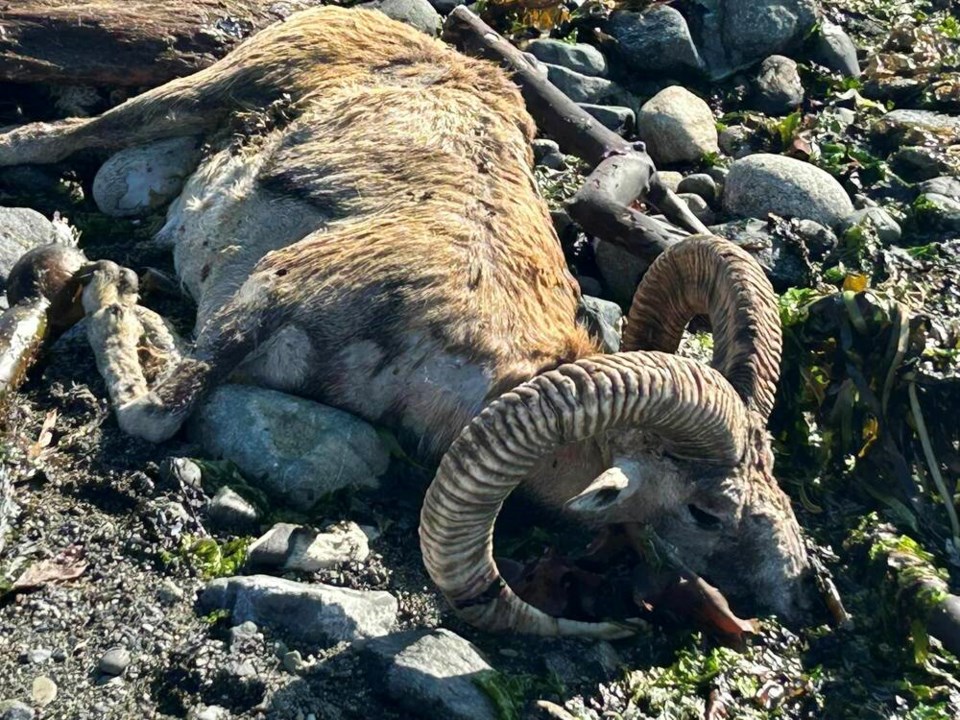A dead ram that washed up on a Colwood beach last week — and looked a lot like a bighorn sheep from the Rockies — is actually a domestic mouflon sheep that likely came from a nearby farm.
A woman on a walk discovered the dead ram with long curving horns on a rocky beach at Royal Bay on Sept. 7.
Her post on the Facebook group Field Naturalists of Vancouver Island created a stir, with some questioning if the intact carcass was a big horn sheep. And if it was, how did it get there?
But the Ministry of Water, Land and Resource Management said Friday the dead ram was likely a domesticated mouflon sheep, a wild breed native to the Caspian region around Turkey and Iran.
“There are herds nearby that would account for a sheep potentially washing up in this location,” a ministry spokesperson said in a statement.
After reviewing the photos, sheep experts in the provincial wildlife branch also determined it is a domestic mouflon ram, about six years old, and not a wild sheep.
The ram did not appear to have a tag or other identifying marks that would indicate the owner. It also didn’t appear to have any wounds associated with an attack by a predator.
Lorraine Buchanan, who operates Parry Bay Sheep Farm in Metchosin, said she originally suspected the mouflon ram could have come from a property on Swanwick Road in Metchosin, where the owners have a small herd on a pasture with ocean access around Taylor Beach.
She said there are others on the Island with mouflon sheep, but the Swanwick Road property is the only one with ocean pasture access.
But Buchanan said the owners of the Swanwick property told her that all their mouflon sheep were accounted for.
Three years ago, the Buchanans lost four sheep to drownings after the animals were chased by a cougar into the water on leased pasture in East Sooke, she said, with only one body recovered. “A sheep will run into the water to escape an attack,” Buchanan said.
She said the Parry Bay Sheep Farm continues to lose animals after attacks by bears and cougars. This season alone, Buchanan said, 25 sheep have been killed on pastures from Metchosin to the Highlands.
As for the dead ram at Royal Bay, another theory is that it could have come from established herds on Spieden Island, about a kilometre north of San Juan Island in the U.S. Gulf Islands, just over the international boundary east of Victoria.
Spieden Island was stocked with mouflon sheep from Corsica, fallow deer from Europe and Sika deer from Asia — as well as other exotic animals — for big game hunting in the 1960s, and the sheep and deer remain.
Whale-watching companies often cruise by the private island to view the sheep.
The game farm, which reportedly attracted celebrity hunters such as John Wayne, was shut down in the 1970s after local outrage over what were seen as unfair hunting practices and the danger stray bullets posed to nearby San Juan Island.
>>> To comment on this article, write a letter to the editor: [email protected]



